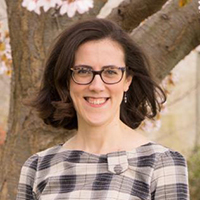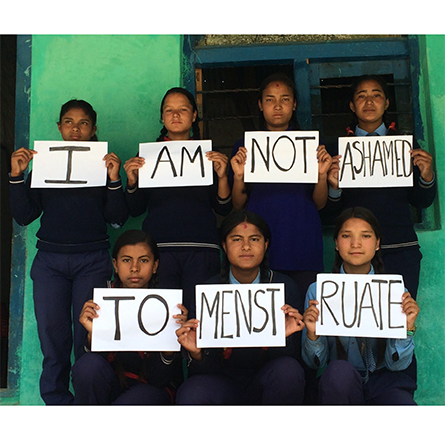
Amiansu Khanal ’20 works to end menstrual exile in rural Nepal
“You try to lock me up in huts, in barns, near animals. No more.”
This is the message teenage girls in rural Nepal are now using to stand up to their families and break a deeply entrenched tradition of menstrual exile, thanks to the work of Amiansu Khanal ’20.
With a $10,000 Davis Projects for Peace grant, Khanal spent the summer in Jumla and Palpa, Nepal, working to end chhaupadi, the practice of banishing girls and women to huts and cattle sheds during their periods.
“These women are not allowed to enter the house, the kitchen or even gain access to the bathroom,” Khanal said. “This practice not only disempowers women, but also puts their hygiene, and at times, their lives, in danger.”
Chhaupadi was outlawed by the Supreme Court of Nepal in 2005, and a 2017 law makes the practice punishable with a fine and up to three months in jail. Still, the tradition is still widely practiced in western Nepal.
Khanal, whose family is from Nepal and who speaks fluent Nepali, has seen the impact firsthand. She founded ShEmpowered to teach girls and women about their legal rights and dignified menstruation, to provide menstrual products to schools, and to partner with local law enforcement agencies to help end menstrual exile.
To reach as many girls as possible, Khanal traveled to regional high schools in two rural areas of western Nepal and taught classes on the science of menstruation, the proper use of sanitary products and the laws related to chhaupadi.
She also met with numerous government officials, all of whom she said were “superficially supportive” of her work, but uninterested in participating in any meaningful way. One of her last meetings was with representatives from the district police headquarters, who surprised her by promising to counsel parents on the legal ramifications of forcing their daughters to participate in chhaupadi, and to take legal action if the problem persisted. Still, police were skeptical that anyone would take them up on the offer.
“My favorite moment of the summer was the day I brought the affected girls to the police station, and they had a long conversation with the head policewoman. I remember a shy girl called Sushmita bursting into tears toward the end because she was overjoyed with the policewoman’s support,” Khanal remembered.
When she left Nepal, Khanal turned the everyday operation of ShEmpowered over to Lanka, a high school senior and activist.
“She tells me that things are improving and that her peers confronted their parents and are being allowed to sleep in their own rooms,” Khanal said. “I felt so proud of the girls who stood up for themselves … all the quarrelling with local officials, with the women, the priests; all the inconveniences, the two hours of hiking to get anywhere, the heat—it was all worth it.”
A government and economics major and scholar in the Toor Cummings Center for International Studies and the Liberal Arts, Khanal hopes to go to law school and eventually practice international human rights litigation. She says her experience in Nepal taught her the power of empowering the disenfranchised.
“NGOs often try to give voice to the voiceless, but in doing so they risk becoming the voice themselves. What we ought to do, instead, is to help the marginalized find their own voice. Then, when the collective finds their voice, they become unstoppable, just like my sisters in Nepal.”

